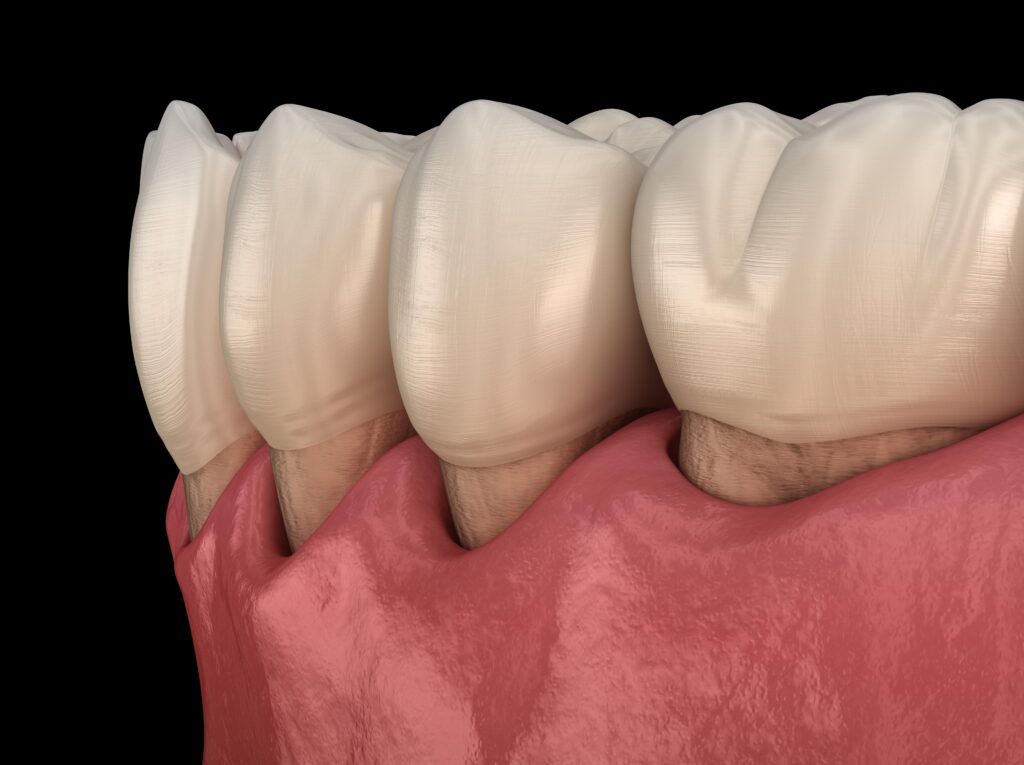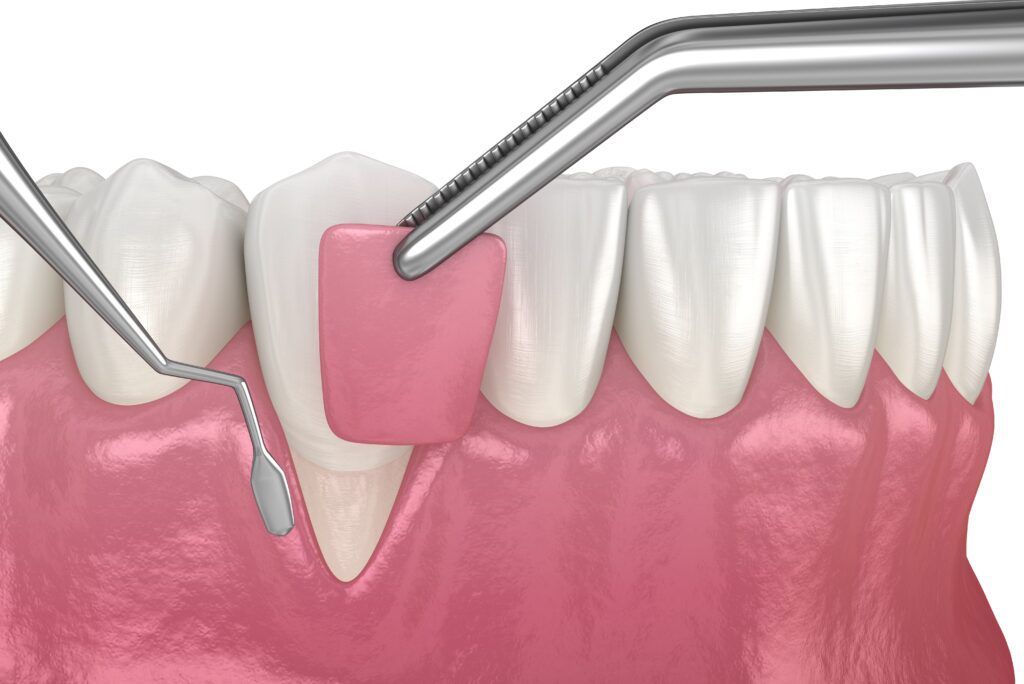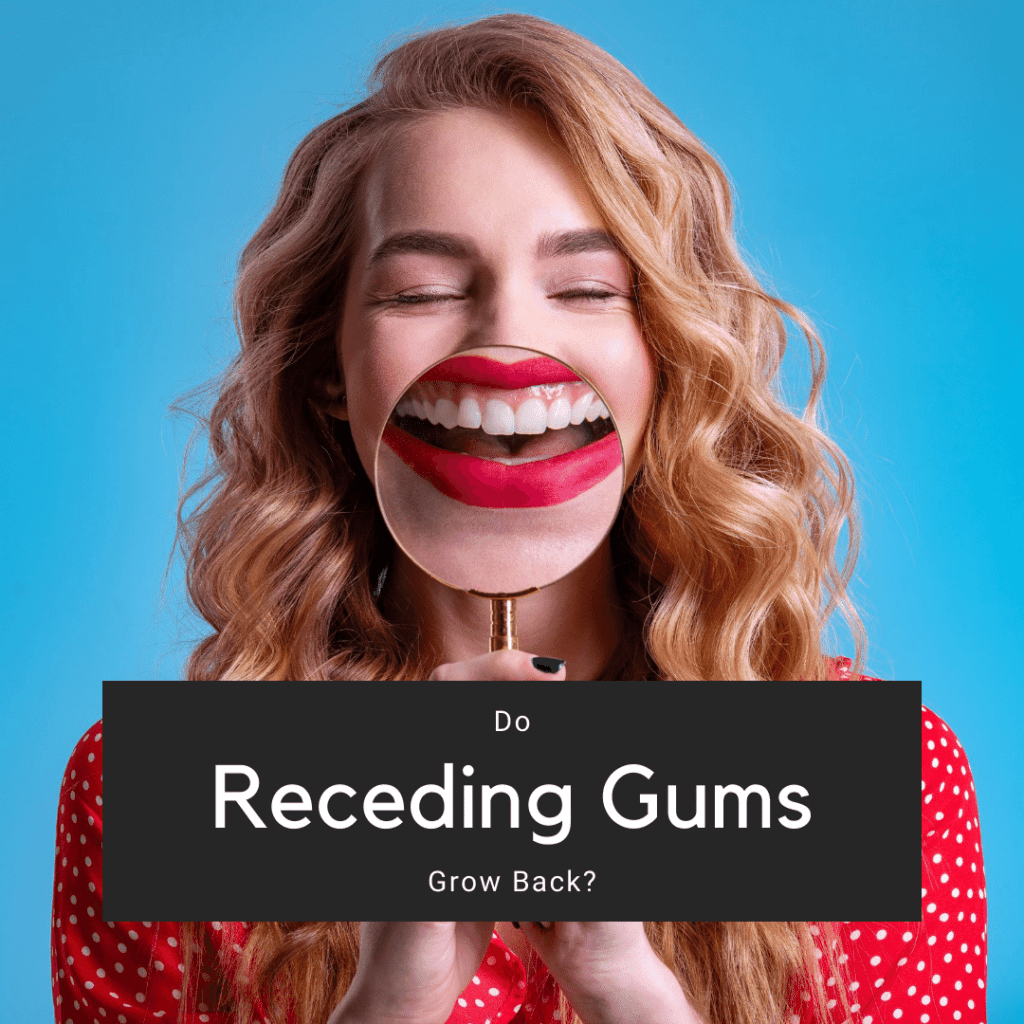Gum recession is a problem that many people suffer from. It can make your teeth appear longer than normal, and it can also cause tooth sensitivity in some cases. Not to mention the fact that gum recession can be bad for your oral health. The good news is that there are treatments for gum recession available! We will talk about what receding gums are, what causes receding gums, and how to treat them if you have this condition.
What is Gum Recession?

First things first, let’s make sure we know the definition of gum recession. Receding gums are gums that are slowly pulling away from the teeth, which exposes more of the tooth root. By exposing the tooth roots, this condition makes them more susceptible to decay and tooth sensitivity.
Gum recession can also lead to the formation of periodontal pockets. These pockets are gaps between the teeth and gums where plaque and bacteria can accumulate. If left untreated, this further inflames the gums, increases gum recession, and can eventually lead to tooth loss.
What Causes Gum Recession?
Now that we know what gum recession is, let’s take a look at some of the causes. There are many different factors that can contribute to receding gums, including
- Bacteria that live in your mouth and accumulate on teeth. This bacteria begins to break down any enamel it comes into contact with, resulting in gum recession over time. It’s important to brush regularly and floss regularly to help eliminate bacteria from your teeth.
- Certain medications can make your gums more sensitive, which may lead to receding gums as a result of that sensitivity. Talk to your doctor or dentist if you are taking medication that is making your gum recession worse.
- People who use tobacco products often have an increased risk of gum recession. This is because smoking and other tobacco use cause dry mouth, which can lead to receding gums as the tissues in your mouth shrink. It’s important to stop using any products that contain nicotine if you want healthy teeth!
- Brushing incorrectly or not brushing enough are also factors that contribute to gum recession. If you don’t brush regularly and with the right technique, you can actually make your gum recession problem worse over time.
- Genetics may also play a role in causing receding gums. If someone in your family has had this condition before, it’s likely that you will suffer from gum recession as well.
Treatment for Gum Recession
So we’ve covered what gum recession is, some risks associated with it, and what causes it. Now let’s talk about how to treat gum recession. Unfortunately, gum tissue does not grow back once it has receded. Therefore, if you have gum recession, your dentist will likely recommend a treatment plan that includes a combination of different methods. This may include:
Scaling and Root Planing
Scaling is a technique used to remove the build-up of plaque and bacteria from the surface of the teeth and the tooth roots. After the teeth have been scaled, root planing is performed to smooth the root surfaces and prevent future plaque growth. This deep cleaning is repeated every few months.

Gum Graft
A gum graft is a surgical procedure where the dentist takes a piece of healthy gum tissue from another part of your mouth and transplants it to the area where you have gum recession. The bulk of the root will be covered by healthy gum tissues, preventing additional gum recession from happening. Gum grafts are also useful in preventing tooth decay and bone loss.
Regular Dental Exams
In order to catch gum recession before it goes too far, regular dental exams are important. During your exam, your dentist will check for any signs of receding gums and recommend a treatment plan if necessary!
Home Care
Although gum recession can be hard to prevent, there are some things you can do in your home to help keep it under control. Brushing with a toothpaste that contains fluoride will help strengthen teeth and reduce receding gums over time! You should also stick to a regular brushing routine at least twice per day, floss every night before bed, and avoid smoking and excessive sugars.
If you are experiencing gum recession, it’s important to seek treatment as soon as possible. By taking care of the problem early on, you can prevent further damage and keep your oral health in good shape! Channo DDS is a dentist who specializes in treating gum recession and offers a variety of treatments that can help get your gums back to their healthy state. Contact Channo DDS today to schedule an appointment!


